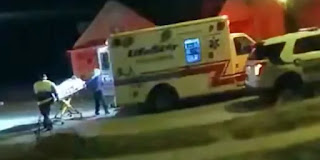Our Mind vs Our Body
Wars, active shootings, natural disasters, government shut downs, civil unrest, a pandemic, and everyday stress are more than enough reasons we should take care of our mental health.
Mental health is our emotional, psychological, and social well being. It affects how we think, feel and behave. Our mental health not only affects us personally but our relationships with others, daily living and even our physical health. It determines how we handle stress related events and our ability to make healthy choices. Poor mental health is NOT the same as mental illness. It is important to remember that mental illness is diagnosed while mental health issues are not. Many People often use the term mental health to imply an absence of a mental disorder.
Many people go to the doctor for routine check ups, take vitamins and work out to stay physically healthy but what are we doing for your mental Health? Our mental health is just as important as our physical health. Both components affect our overall health. As we grow and change overtime so does our mental health. When our life experiences exceed what we can handle and our ability to cope with situations are damaged, this affects our mental health each time.
According to the Center for Disease Control and Prevention (CDC) mental illnesses are among the most common health conditions in the United States. Everyone at some point is at risk of developing a mental health disorder regardless of age, sex, economic class or ethnicity. The CDC states that:
- More than 50% of Americans will be diagnosed with mental illness or disorder at some point in their life.
- 1 in 5 Americans will experience a mental illness in any given year.
- 1 in 5 children either right now or at some point during their life have had a mental illness
- 1 in 25 Americans live with a serious mental illness.
Types of Mental Health Disorders
- Anxiety - involves excessive worry or fear that interrupts everyday living.
- Panic Disorder- sudden overwhelming terror or a sense of imminent disaster or death.
- Obsessive Compulsive Disorder (OCD)- involves experiencing constant stressful thoughts and the urge to perform acts repetitively.
- Post Traumatic Stress Disorder (PTSD)- occurs after a person have experienced a traumatic or stressful event. ( Very common in soldiers when they return home from war)
- Depression- experiencing low mood all the time, looses interest in activities and even you previously enjoyed.
- Bipolar Disorder- unusual changes in mood, energy levels, and ability to continue with everyday life.
- Seasonal Affective Disorder (SAD)- a reduced level of daylight during the fall, winter, and early spring months.
- Schizophrenia- a high complex condition which refers to a spectrum of disorders assorted by psychotic features and other extreme symptoms.
There is no single cause for mental health issues but there are a number of ways we can help cope with a mental illness. Reducing the intake of alcohol, getting more excercise, eating healthy and staying hydrated is important. Making sleep a priority as well, lack of sleep is not healthy for you mentally and physically. Also try relaxing activities, speaking positive things, set small goals and work toward them. Most important stay connected with friends and family they are here to help, but they can't help if they do not know.
If you find yourself struggling to sleep, concentrate, unable to perform daily activities, or even an appetite change it may be time to seek professional help. There are numerous places you can go and get help. Now they even have hotlines you can call from wherever you are located. I'm going to list a few below that were suggested by some of my colleagues.
SAMHSA- Substance Abuse and Mental Health Services Administrations
Open 24/7 365 days a year
Free and confidential with English and Spanish options
1-800-662-HELP (4357)
988 Suicide and Crisis Lifeline
Open 24 hours a day
Offers English and Spanish
Dial 988 or go to their website at 988lifeline.org
National Suicide Prevention Lifeline
Open 24/7 365 days a year
1-800-273-TALK (8255)
For Spanish dial 1-888-628-9454
Dr. Noam Shpancer once said "Mental health is not a destination, but a process. It's about how you drive, not where you are going". If you find yourself dealing with a mental health disorders, step back take a deep breath and ask for help, you are not in this journey alone!


Comments
Post a Comment